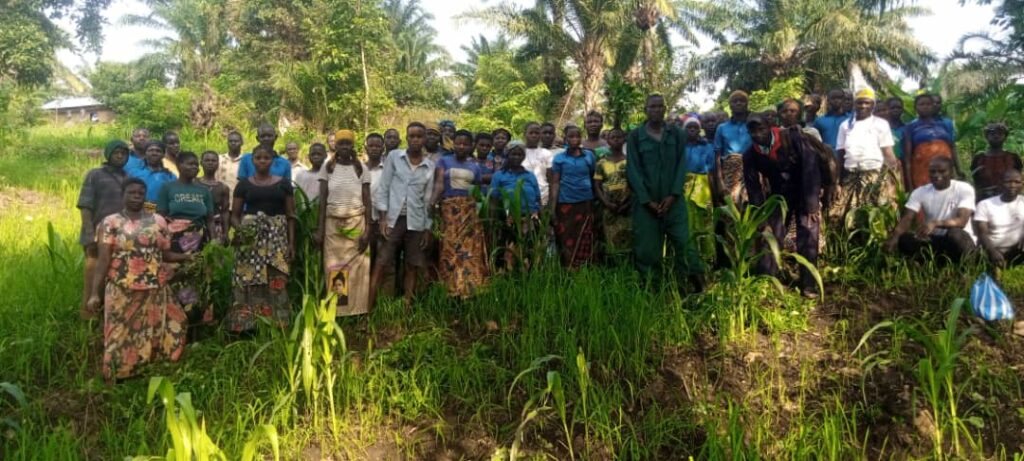With the world on the brink of irreversible climate change induced crises, it is imperative to preserve biodiversity hotspots such as the Congo Basin and the neighbouring Albertine region.
Described as the world’s second biggest lungs, the Congo Basin helps absorb greenhouse gases from the atmosphere, which in turn slows down the rate at which the world is warming. The Albertine landscape plays a similar role, albeit to a smaller extent than the Congo Basin.
Together these two landscapes are helping to slow down the reality of climate-induced extreme natural disasters and novel diseases that could soon become the new normal.
In a world that refuses to give up fossil fuel, which is one of the biggest pollutants in the atmosphere, preserving carbon sinks such as the Congo Basin and the Albertine landscape is important.
Yet, both the Albertine region and the Congo Basin are home to a population that is so poor, it has no choice but to exploit, these biodiversity hotspots.
To counter destruction of these important landscapes, Environmental Defenders a non-profit focused on conservation and human rights work is investing in different initiatives to support the population living in the Congo Basin and Albertine landscapes.
The support ranges from an award that recognises individual and organisational contribution in conserving the Congo Basin and Albertine landscapes, a radio station that equips the population with information to preserve their environment and a tree planting initiative that preserves and plants indigenous trees.
Environmental Defender’s mission is to create a natural environment that is safe, healthy, and ecologically sustainable for both people and wildlife that rely on it.
Environmental Defender’s work addresses climate change and population, two challenges that continue to damage arable land, fresh water, and biodiversity.
This mission is all the more urgent, as climate change is intensifying inequality and risks for low-income communities, such as those that live in the Albertine and Congo Basin landscapes.
To mitigate climate change risks, Environmental Defenders has vowed to invest in biodiversity preservation, as it is vital for these communities’ economic opportunity, wellbeing, and the reduction of food and water insecurity.
One of the key projects for Environmental Defenders is the restoration of forest. Globally it is now clear that tree planting and restoration of previously destroyed forests is important.
The goal is to align with the global appetite to bring 150 million hectares of degraded and deforested lands into restoration by 2020 and 250 million hectares by 2030.
The organisation also believes that tree planting in the Albertine and Congo Basin landscapes will improve the economic fortunes of the communities that live in this area, as the carbon credit market can act as a source of income.
The organisation also hopes that its re-forestation programme will metamorphosis into the creation of bird nesting places in areas where they had been degraded.
An afforestation and re-forestation drive that could also improve regulation of water levels whose aquifers are under threat.
Since Environment Defenders’ field of work straddles Murchison-Semliki, Greater Virunga, and Ituri landscapes, that host a variety of bird species, primates that only found in this area and mammals, the re-forestation programme will create wildlife corridors, restore damaged land, conserve critical habitats, and ensure genetic exchange among species.
To ensure the right tree species are planted the organisation does seed banking to address the issue of a shortage of quality seed.
While the gospel to plant as much trees as possible is widely accepted, the general trend has been to plant exotic species such as Eucalyptus and Pine, whose natural habitats are in temperate areas such Europe, Australia, North America and parts of Asia.
Lonyo Sarah, the Environmental Defenders senior programme officer says the nature of tree species are important.
She expresses frustration at the ongoing efforts to promote what she terms as invasive species, which are not good for keeping biodiversity in its original state.
“For us we want to reverse this. We collect seed from natural trees which are on the verge of extinction and vulnerable,” adds Lonyo.
She said they have ramped up efforts to collect indigenous seedlings such as Mahogany and Sheer tree, among others.
The seeds are kept in a seed bank to wait for the right planting seasons. The seeds are taken out of the bank for planting in a nursery bed. Later the seeds are distributed to the community for planting with the guidance of agronomists.
For as long as the season isn’t right, the seeds remain in a seed bank at the hilly plains of Kaginga village, Panyimur Sub-County, Pakwach district. Panyimur, Sub-County, Pakwach district being a water stressed area, Environmental Defenders has invested in solar power desalination to keep these important tree seedlings safe until the rains are adequate for planting.
Lonyo says they have trained foresters, collectors to collect these wild seeds from forests to the seed bank. The community has also been inducted how to protect these wild seeds.
Environmental Defenders has a network of 500 seed collectors in its area of operation. The organisation has further trained each to work with their community monitors.
In addition, farmers through these trainings know how to set the nursery bed so that they can supply or sell to earn revenue as a way of empowering them economically.
The long-term goal, Lonyo said, is to provide; firewood for cooking, wildlife habitats, regulate temperatures, and water tables, provide carbon removals from the atmosphere and attract rainfall to smallholder farmers.
She says under tree planting programme, they are protecting 1,500 hectares of native forest cover.
The organisation is actively involved in land acquisition in areas where they predict can get immediate effects of biodiversity and areas threatened by mining and fossil fuel extraction.
Environmental Defenders is currently working in Uganda’s Kaginga-Lake Albert Nile Delta, and has been there since 2020 having acquired the block after French Firm Total Energies degraded it during oil exploration.
They also have project restoring and establishing the wildlife corridors between East Madi wildlife reserve and Murchison falls national park.
“They are dispersing and getting intact.” Lonyo says.
Asked on where the organisation gets resources to operate, she said, they get funds from friends and donors through call for proposals from non-profit and funders but majority is inborn through sell of seeds on contract.
Through innovative community initiatives, Environmental Defenders has supported marginalised indigenous and traditional communities in the Albertine Rift.
Protecting rangers and forest guards
Environmental Defenders is concerned that Africa has one of the highest rates of violence against rangers and environmental defenders globally.
Rangers and forest guards play a critical role in protecting biodiversity and ensuring the sustainable management of natural resources.
However, armed groups and criminals, especially in regions like DR Congo, where political instability and the presence of armed militias make this particular work risky.
Many rangers face inadequate resources and training, leaving them vulnerable to attacks.
The organisation has supported rangers with tools, technology, and training to ensure their safety while protecting forests and wildlife.
Tackling poverty, food insecurity, and youth unemployment
In the Albertine Rift and surrounding areas, more than half the population lives in extreme poverty, with 95% residing in rural areas.
Subsistence farming dominates, but limited productivity and poor market access trap families in chronic poverty.
Malnutrition, poor healthcare, and limited access to education exacerbate the economic challenges.
Environmental Defenders addresses these challenges by enhancing agricultural productivity, strengthening cooperatives, providing training in financial literacy, gender awareness and life skills.
Environmental Defenders works to increase economic resilience, especially for women and youth, who often face additional barriers to education and employment.
Climate change and environmental challenges
Climate change disrupts rainfall patterns, increases the frequency of droughts and floods, and exacerbates food insecurity.
With over 90% of households depending on agriculture, these climatic shocks devastate livelihoods and deepen poverty.
Environmental Defenders helps farmers adapt to these changes by providing training in climate-smart agriculture, agro ecology, and nature-based solutions.
Building strong social capital, governance
The erosion of traditional community support systems has left many villages without effective community-based organisations (CBOs).
Environmental Defenders helps strengthen these organisations by building leadership and governance capacity, promoting transparency, and fostering collaboration with local governments.
Ongoing conflicts, displacement, and the impacts of oil and gas development in the region have worsened socio-economic instability.
These activities have led to land disputes, environmental degradation, and the displacement of vulnerable populations.
Environmental Defenders works to mitigate these impacts by providing skills in climate-smart agriculture, leadership and policy advocacy.
Empowering farmers through cooperative
Terra Cooperative is the social enterprise arm of Environmental Defenders, supporting over 50,000 farmers in the DR Congo with climate-resilient agricultural techniques, market access and financial inclusion.
Terra’s objectives include improving the well-being of members, managing climate threats, encouraging sustainable agriculture and adding value to members’ products for better market prices.
The cooperative focuses on diverse crops and products, from coffee and cocoa to cassava and fish, and works with producers to restore land, safeguard biodiversity and combat climate change.
It provides essential support for farmers and cooperatives in achieving financial stability and environmental sustainability.
Source: Environmental Defenders https://watetezi.org/


